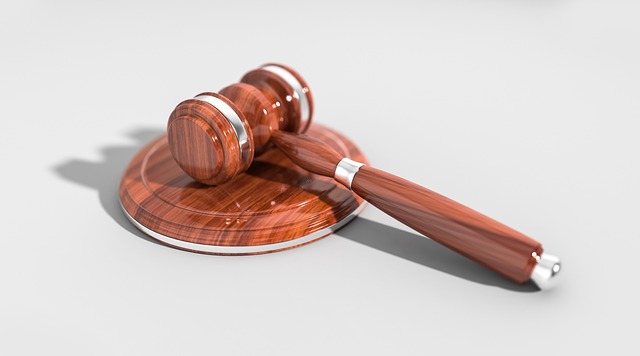Judicial Recusal: Safeguarding Impartiality in the Courts
Introduction: In the realm of justice, the concept of judicial recusal stands as a crucial safeguard for fairness and impartiality. This article delves into the intricacies of judicial recusal, exploring its historical roots, modern applications, and the ongoing debates surrounding this critical legal practice.

During the 18th and 19th centuries, as legal systems became more formalized, the importance of judicial impartiality gained prominence. The United States, in particular, saw significant developments in recusal law during this period. The Judiciary Act of 1792 introduced the first federal recusal statute, setting the stage for more comprehensive regulations in the future.
Modern Recusal Standards
Today, judicial recusal standards vary across jurisdictions but generally adhere to similar principles. In the United States, federal judges are governed by 28 U.S.C. § 455, which outlines specific circumstances requiring recusal. These include personal bias or prejudice, financial interest in the case, and prior involvement in the matter as a lawyer.
Many state courts have adopted similar standards, often incorporating additional ethical guidelines. The American Bar Association’s Model Code of Judicial Conduct serves as a template for many state judicial codes, providing comprehensive guidance on recusal and disqualification.
Challenges in Applying Recusal Standards
Despite clear guidelines, the application of recusal standards often presents challenges. Judges must balance the need for impartiality with the duty to hear cases assigned to them. This tension can lead to difficult decisions, particularly in high-profile or politically sensitive cases.
One significant challenge is the subjective nature of bias assessment. While some conflicts of interest are clear-cut, others may fall into gray areas. Judges must carefully consider whether their impartiality might reasonably be questioned, even if they believe they can remain unbiased.
The Role of Self-Recusal
Self-recusal plays a crucial role in maintaining judicial integrity. Judges are expected to proactively identify potential conflicts of interest and recuse themselves when necessary. This practice relies heavily on individual integrity and self-awareness.
However, self-recusal is not without controversy. Critics argue that it may be used strategically by judges to avoid politically sensitive cases. Conversely, failure to recuse in clear conflict situations can undermine public trust in the judiciary.
Recusal in High-Profile Cases
High-profile cases often bring recusal issues into the spotlight. In recent years, several notable cases have sparked debates about judicial impartiality at the highest levels of the judiciary. These situations highlight the delicate balance between maintaining public confidence in the courts and ensuring that qualified judges are not unnecessarily sidelined.
The Supreme Court of the United States, in particular, has faced scrutiny regarding recusal practices. Unlike lower courts, Supreme Court justices have the final say in their own recusal decisions, leading to calls for more stringent and transparent procedures.
Impact on Public Trust in the Judiciary
Proper handling of judicial recusal is essential for maintaining public trust in the legal system. When judges appropriately recuse themselves, it reinforces the perception of an impartial judiciary. Conversely, failures to recuse in clear conflict situations can severely damage public confidence.
Transparency in recusal decisions is increasingly important. Some jurisdictions have implemented measures to make recusal processes more open, including requiring written explanations for recusal decisions. These efforts aim to enhance accountability and public understanding of judicial ethics.
Future Directions and Reforms
As legal systems evolve, so too must recusal practices. There are ongoing discussions about potential reforms to strengthen judicial impartiality. Some proposals include creating independent panels to review recusal decisions, implementing more stringent disclosure requirements for judges, and establishing clearer guidelines for specific types of conflicts.
Technology also presents new challenges and opportunities in this area. Social media and digital communications have created new potential sources of bias or apparent conflicts, requiring updated guidelines. Simultaneously, technology could offer solutions for more efficient conflict checking and disclosure processes.
In conclusion, judicial recusal remains a cornerstone of legal ethics and fairness. As the legal landscape continues to change, the principles underlying recusal must adapt while staying true to the fundamental goal of ensuring justice is not only done but is seen to be done. The ongoing evolution of recusal practices reflects the legal system’s commitment to maintaining public trust and upholding the highest standards of judicial integrity.






